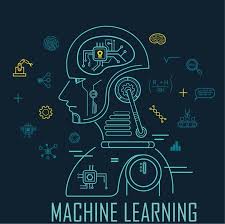As machine learning continues to evolve and become more ubiquitous, it will inevitably have an impact on the job market. While some jobs may be automated, new jobs will also be created.
Machine learning jobs have had a significant impact on the professional landscape in recent years. As companies strive to become more data-driven and leverage technology to gain a competitive edge, the demand for professionals with machine learning skills has surged.
This has led to increased job opportunities and higher salaries for those with expertise in areas such as neural networks, natural language processing, and computer vision. Furthermore, machine learning has transformed industries ranging from healthcare to finance by enabling automation, predictive analytics, and personalized customer experiences.
However, this rapid expansion of machine learning also presents challenges such as a shortage of skilled workers and ethical considerations regarding data privacy and bias.
For example, machine learning engineers, data scientists, and AI ethicists are all roles that are likely to become more in demand as the adoption of machine learning increases.
In some industries, such as healthcare, machine learning may actually create new jobs. For example, doctors may work with machine learning algorithms to analyze medical data and develop personalized treatment plans.
In other industries, such as manufacturing, jobs may become more specialized as workers focus on tasks that cannot be automated.
Implementing machine learning in your business can be a complex process, but there are several best practices you can follow to ensure success. First, start with a clear business problem and a well-defined use case. This will help you focus your efforts and ensure that you are solving a problem that is relevant to your business.
Second, invest in the right talent and resources. Machine learning requires specialized skills, and it’s important to have a team that can effectively develop, train, and deploy machine learning models.
Third, make sure you have the right data. Machine learning models require large amounts of high-quality data to be effective. Make sure you have a plan for collecting, cleaning, and storing the data you need.
While machine learning has the potential to transform industries and unlock new possibilities, it also comes with several challenges and ethical considerations. One of the biggest challenges is the potential for bias in machine learning algorithms. If the data used to train a machine learning model is biased, the model will also be biased. This can lead to unfair outcomes and discrimination.
Another challenge is the potential for job displacement. As machine learning becomes more ubiquitous, some jobs may be automated, leading to job loss for some workers. It’s important to consider the impact of machine learning on the workforce and develop strategies to mitigate any negative impacts.
Overall, the impact of machine learning jobs is undeniable, shaping the future of work and requiring professionals to continually upskill to stay competitive in the rapidly evolving technological landscape.
My Name is Sandra Butler and I am also the main source from the ‘Seeheadlines.com’ of all the exclusive and most delicate visualization of the activities in the business sector. My first step towards this journey was taken in the very early years of my life. I started with an independent financial consultant. However, I only had almost 4 years of skills and experience in this market.

